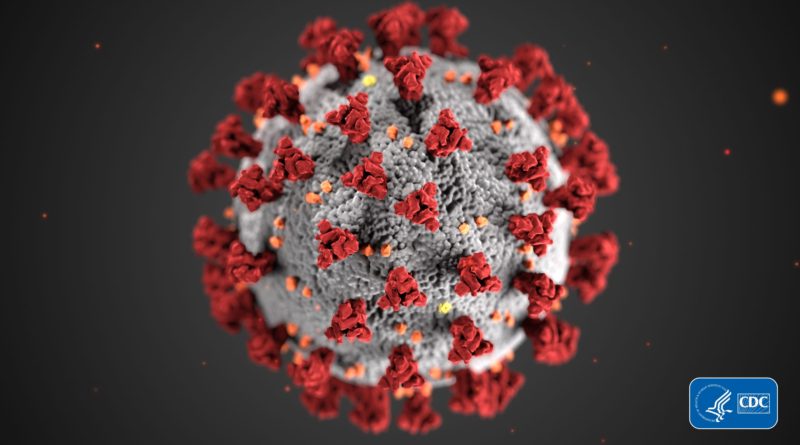What are schools planning this fall during COVID-19 pandemic?
Will K-12 students be returning to their classrooms in the fall?
Schools will be allowed to reopen for in-person classes this fall with certain safety protocols if the area where they’re located stays in Phase 4 (Improving) or Phase 5 (Containing) in Gov. Gretchen Whitmer’s Michigan Safe Start plan. Most of the state, including the Lansing area, is in Phase 4.
Schools will remain closed if their areas are in Phases 1, 2 or 3. Schools can reopen under Phase 6 with minimal required safety protocols.
Whitmer’s MI Safe Schools plan requires school leaders to make plans for remote education, in-person classes and a combination of both. Some schools have already announced plans to start the school year online.
Lansing School District officials agreed to teach classes online through the first marking period, which runs from Aug. 31 to Nov. 6 and to look for any resulting government orders to decide when to bring students back to the classroom.
Waverly Community Schools will keep classes online from August 31 to at least Sept. 30.
Grand Ledge Public Schools will offer students two options — in-person classes or fully online education. In-person instruction would follow state and Centers for Disease Control and Prevention safety protocols and integrate “routines, procedures, and resources designed to ease the transition to online learning if the state or region moves into a phase that requires schools to stop in-person instruction,” according to a flier distributed by the school district.
Mason Public Schools students will also have their pick between in-person and online classes.
Other local districts have not yet committed to in-person or online instruction.
Why bring students back to the classroom during a pandemic?
There is a debate among government, education and medical leaders concerning when schools should reopen.
On the one hand, keeping children away from school puts parents in a tough situation and can be harm kids’ education progress, social development and mental health. On the other had, there is some risk that children will catch the illness at school, bring it home and infect parents or grandparents, who may be more at risk.
But some are advocating for students to return to their classrooms sooner rather than later, among them the American Academy of Pediatrics.
“The available data appear to support that children, especially preschool and elementary-aged, are at lower risk of contracting COVID-19 and are less likely to be primary vectors for the spread of COVID-19,” according to a June 25 statement from the Michigan chapter of the American Academy of Pediatrics.
“Additionally, young people without underlying health conditions rarely become seriously ill from COVID-19. Despite the disproportionately small effect of COVID-19 on children, the public health response has had a disproportionately large effect on children’s lives. School closures have put the mental and social health of children at risk, in addition to affecting their educational trajectories.”
What safety measures will schools follow when they reopen?
Schools reopening under Phase 4 and Phase 5 will require face coverings for all students and staff, except while they eat. Students or staff who can’t wear a facemask because of medical issues will not be required to wear one.
Students in kindergarten through fifth grade who stay with their classes throughout the school day and who do not come into contact with students from outside the class will not have to wear masks.
Schools will have to provide plenty of hygienic supplies, including soap, hand sanitizer with at least 60% alcohol, paper towels, tissues and signs illustrating how students can properly wash their hands. Schools are also required to teach students the proper technique, which involves washing hands with soap for at least 20 seconds as well as using hand sanitizer.
Whitmer’s plan recommends schools practice social distancing, including spacing desks six feet apart and asking teachers to keep at least six feet between themselves and their students.
It’s recommended that schools bar family members and other guests from entering the school buildings except under extenuating circumstances. Family members and guests allowed inside the building should first be screened for COVID-19 symptoms, wear a face covering and wash and sanitize their hands.
For large classes that cannot all safely fit inside a classroom, administrators can consider adopting staggered schedules that split classes and allows some students to attend classes in the building on some days while the others attend remotely.
Schools are encouraged to create a quarantine area with a dedicated staff member where students can go if they become sick. Symptomatic students should stay home from school until they have tested negative or have fully recovered according to CDC guidelines.
Teachers and staff will be encouraged to take daily temperature checks before coming to school. Local health officials, students, parents and staff should be notified of any positive COVID-19 cases.
Schools will be required to clean bathrooms and frequently touched surfaces, such as lights switches and doorknobs, every four hours with a disinfectant or diluted bleach mixture. Student desks, computer labs, libraries, art rooms and other hands-on class areas must be cleaned after every class period.
Students riding a school bus to or from their school buildings must wear facemasks and use hand sanitizer before boarding the bus. Bus drivers must also wear masks. The bus must be cleaned and disinfected after every completed bus route and hand sanitizer must be provided on the bus.
What if I don’t want to send my kid back to class during a pandemic?
Several schools will allow parents and students to opt for online education for the entire school year, including at least Lansing School District and Waverly Community Schools.
What options are there for teachers who feel uncomfortable returning to a classroom?
Schools should create plans that address requests for alternative work assignments, according to Whitmer’s plan. Some schools, including Lansing School District, will allow school staff who could become seriously ill or who have family members whose health could be compromised by contracting COVID-19 to teach solely online.
Contact Mark Johnson at 517-377-1026 or at majohnson2@lsj.com. Follow him on Twitter at @ByMarkJohnson.
Read or Share this story: https://www.lansingstatejournal.com/story/news/2020/07/24/faq-what-schools-planning-fall-during-covid-19-pandemic/5497399002/




